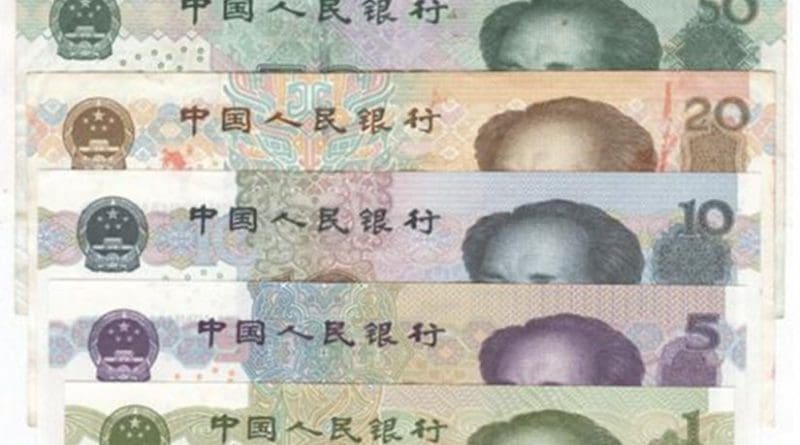City, Wall Street And The Great Renminbi Race – OpEd
Of the world’s two largest international financial centers, London is warming up to the renminbi, but Wall Street is running behind.
Recently, the former mayor of New York City Mike Bloomberg congratulated President Barack Obama and President Xi Jinping for a number of economic steps, but in particular “advancing a mechanism to trade the Chinese currency in the United States.”
Bloomberg responded to the conclusion of the recent US-China Summit in Washington. According to the White House release “the United States and China look forward to continuing to discuss mechanisms to facilitate renminbi trading and clearing in the United States.”
It was the sole and short mention but quickly noticed. As former mayor of New York City and its legendary financial district, Bloomberg has reason to take notice of such statements.
Wall Street Versus the City
For years, New York City’s Wall Street and London’s City have competed for the role of the financial capital of the world. Seen purely in terms of size, the New York Stock Exchange has a market capitalization of close to US$18 trillion; and NASDAQ US$7 trillion. The market cap of the London Stock Exchange is over US$6 trillion.
Size matters but it’s not everything. Both Wall Street and City own large international full-service centers with advanced settlement and payments systems. The two represent large economies, with deep and liquid markets. Both are also seen to have relatively high legal and regulatory standards.
According to the annual Xinhua-Dow Jones index, New York has been the top-ranked center since the 2010 launch of the index.
The two are followed by Singapore, Hong Kong and Shanghai. According to the semiannual London-based and Qatar-sponsored index, New York has just lost its leadership to London and both are followed by Hong Kong, Singapore and Tokyo.
While New York City remains the largest center for trading in public equity and debt capital markets, London maintains the largest trade surplus in financial services around the world.
Historical experience suggests that leadership in international financial services requires these hubs to remain close to global markets and the innovation frontier. Yet, unlike Wall Street, London has embraced the renminbi.
Last spring, many countries in Asia and elsewhere joined the China-proposed Asian Infrastructure and Investment Bank, while Europeans stood aside.
What changed the game was the UK’s decision as the first major Western country to participate in the AIIB. It paved the way for the rest of Europe to follow in its footprints.
The problem is that, however global they may perceive themselves, even the largest international financial capitals must somehow reconcile their interests with those of the national interest.
Shanghai-HK stock connect
When HSBC recently measured the rapid expansion in yuan usage outside China’s mainland, it concluded that most yuan bilateral swap lines, deposits, RQFII (renminbi foreign institutional investor) quotas and appointed clearing banks remained in Asia by far; particularly in Hong Kong, followed by Korea, and Singapore.
The UK had 200 billion yuan (US$31.5 billion) in bilateral swap lines (more than Switzerland), 25 billion yuan in deposits and 80 billion yuan in RQFII quotas. Despite its global financial clout, the US was absent.
Reminiscent of the Shanghai-Hong Kong stock connect, the idea of a Shanghai-London connect also emerged last fall. Recently, China and the UK agreed to carry out a feasibility study on the project, which, along with major trade deals, is likely to be discussed during President Xi’s state visit later in the month.
Of course, as critics argue, London faces many obstacles, from the time zone dilemma to the yuan as the sole settlement currency, among others. But at least London is on the right track.
Perhaps that’s why Bloomberg applauded the US-China Summit’s effort to increase the use of the yuan to facilitate trading and clearing in the US. In the race to become the first major clearinghouse for the yuan outside Asia, Wall Street cannot afford to fall behind.
The original commentary was released by Shanghai Daily on October 13, 2015.

